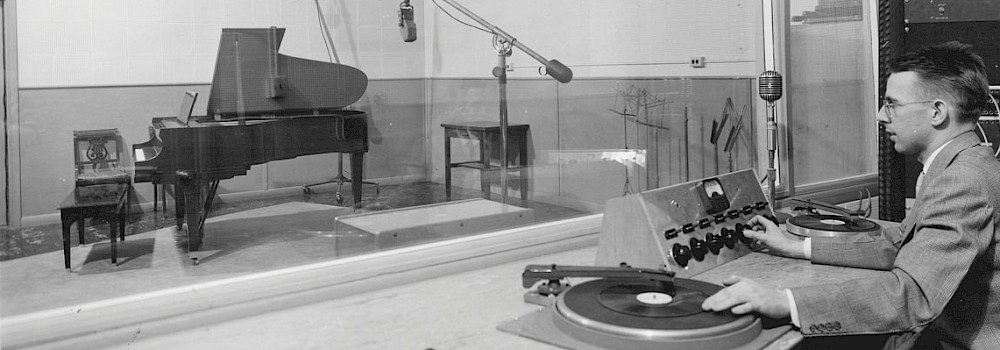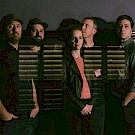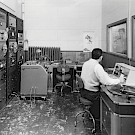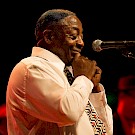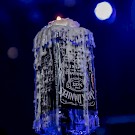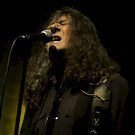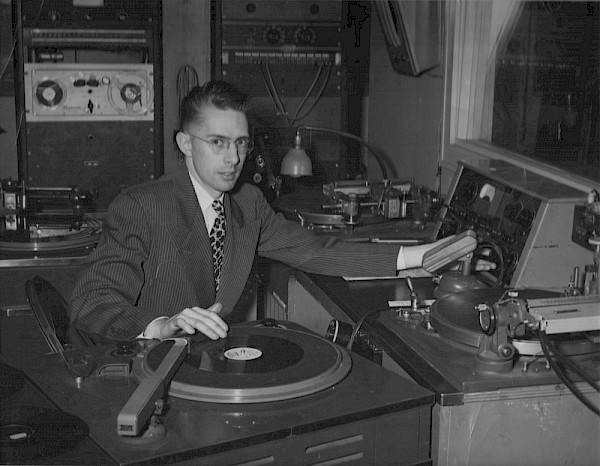 Recording engineer Robert Lindahl ran SW Portland’s Northwestern Incorporated, Motion Pictures and Recording, tracking some 4,000 sessions between the 1950s and 1970. In 1963, just a few days apart from one another, two local acts recorded their own renditions of “Louie Louie” in the room pictured above, tracked by Lindahl from this control room: Photo courtesy of the Robert M. Lindahl FamilyIn the spring of 1963, The Kingsmen and Paul Revere and the Raiders each recorded a rowdy version of Richard Berry’s sexy sea shanty “Louie Louie” at a now-defunct SW Portland studio.
Recording engineer Robert Lindahl ran SW Portland’s Northwestern Incorporated, Motion Pictures and Recording, tracking some 4,000 sessions between the 1950s and 1970. In 1963, just a few days apart from one another, two local acts recorded their own renditions of “Louie Louie” in the room pictured above, tracked by Lindahl from this control room: Photo courtesy of the Robert M. Lindahl FamilyIn the spring of 1963, The Kingsmen and Paul Revere and the Raiders each recorded a rowdy version of Richard Berry’s sexy sea shanty “Louie Louie” at a now-defunct SW Portland studio.
Northwestern Incorporated, located at 411 SW 13th Ave. on the same block as the Crystal Ballroom, was owned and operated by Robert Lindahl, and within an eight-day period, competing versions of the most ubiquitous rock song in the world issued forth—which makes it as good a place as any to begin a short, and admittedly incomplete, history of local recording studios. These are the rooms that hosted storied sessions and mythic musicians in pursuit of high fidelity.
In the latter part of the 20th century, Chico-transplant Larry Crane began recording folks like Cat Power and Stephen Malkmus from the basement of his home on SE Yamhill and 32nd, which he dubbed Laundry Rules Recording.
 Left to right: Larry Crane of Jackpot! with his new tape deck; Elliott Smith recording “Baby Britain” from 'XO'; Sleater-Kinney's Carrie Brownstein and Corin Tucker at workAn early association with fledgling solo artist Elliott Smith would lead to the creation of Jackpot! Recording Studio (now in its second southeast location) as Crane became the dean of DIY studio culture, especially considering his powerhouse roster of indie clients like Sleater-Kinney, The Decemberists, M. Ward, Quasi, and The Go-Betweens, as well as his instructive Tape Op magazine.
Left to right: Larry Crane of Jackpot! with his new tape deck; Elliott Smith recording “Baby Britain” from 'XO'; Sleater-Kinney's Carrie Brownstein and Corin Tucker at workAn early association with fledgling solo artist Elliott Smith would lead to the creation of Jackpot! Recording Studio (now in its second southeast location) as Crane became the dean of DIY studio culture, especially considering his powerhouse roster of indie clients like Sleater-Kinney, The Decemberists, M. Ward, Quasi, and The Go-Betweens, as well as his instructive Tape Op magazine.
Like most major cities, studios tended to coalesce around different musical enclaves: For over 30 years jazz and blues cats—Mel Brown, Curtis Salgado, Bernard Purdie, and Duffy Bishop to name a few—have sharpened their sounds with Dennis Carter at Falcon Recording Studios in southeast, which remains operational to this day.
Veteran Portland punk guitarist Jeffrey Larson (Nervous Christians, The Weaklings, Exacerbators) recalls Karl Brummer’s Anonymous Noise studio in southeast (“about a block from the Oregon Theatre”) as a formidable creative hub that issued records from Richmond Fontaine, Everclear, Fernando, The Jimmies, and Iommi Stubbs.
Nearby on SE Division, Kung Fu Bakery was co-owned by former White Horse Studios musician and engineer Tim Ellis, who sadly passed away in 2016. Scores of artists from Pink Martini to The Shins laid down tracks at KFB under Ellis’ tenure.
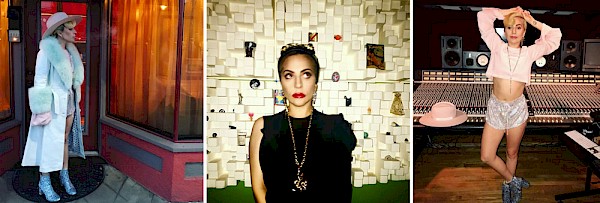 Lady Gaga hanging at Dead Aunt Thelma’s last OctoberStudio boss and engineer Mike Moore formerly served with Recording Associates on SE Powell (now on SE 92nd and Clay) before building Dead Aunt Thelma’s in Sellwood in 1990, where showbiz types Lady Gaga, Sheryl Crow and Wilco have utilized the facilities, in addition to scores of local notables such as Dave Frishberg, Lily Wilde, Norman Sylvester, and Tom Grant.
Lady Gaga hanging at Dead Aunt Thelma’s last OctoberStudio boss and engineer Mike Moore formerly served with Recording Associates on SE Powell (now on SE 92nd and Clay) before building Dead Aunt Thelma’s in Sellwood in 1990, where showbiz types Lady Gaga, Sheryl Crow and Wilco have utilized the facilities, in addition to scores of local notables such as Dave Frishberg, Lily Wilde, Norman Sylvester, and Tom Grant.
Another longtime fixture, Drew Canulette has operated Dogfish Sound in North Portland for more than 30 years, working alongside big name talents like Neil Young, Danny Elfman and Black Flag, as well as regional rock stars like Nirvana, Soundgarden and the Dharma Bums.
Just across the river in Vancouver, engineer Kevin Nettleingham at Nettleingham Audio has played host to influential Portland acts like Obo Addy, Floater, Engorged, Grails, and All Girl Summer Fun Band, not to mention one of our most acclaimed literary figures, Chuck Palahniuk, who narrated Tour Stories Volume 1 under his supervision.
Cloud City Sound opened in 2009 as part of Rick McMillen’s SuperDigital and CDPDX empire, which just shuttered this spring after operating in northwest since 1987 (but it’s been promptly reincarnated by former employees as Astro Audio PDX based out of The Hallowed Halls). Justin Phelps, a Bay Area engineer who’s worked with Dead Kennedys, Amanda Palmer and Cake (to name a few), brought a measure of prestige to the enterprise. Phelps eventually moved on to hatch The Hallowed Halls in 2015, a studio housed in a former library just off SE Foster.
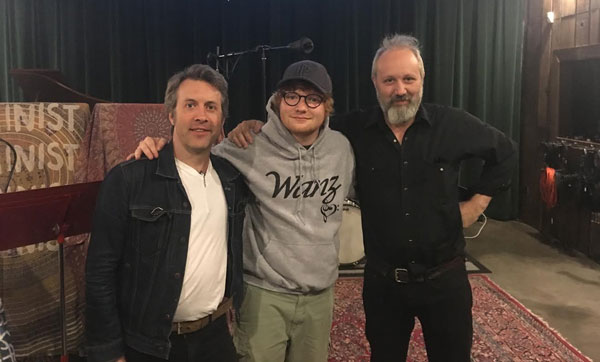 Steve Murray and Sean Flora at the recently dismantled Seismic Activities with Ed Sheeran (center)One of the recent residents of Cloud City was Sean Flora, the former proprietor of the bucolic Sauvie Island studio retreat The Rock n Roll BnB. Flora, a musician and engineer with extensive credits—including a gold record for his work on The Shins’ Wincing the Night Away (recorded at Oregon City’s Supernatural Sound) and live engineering The Black Keys’ Live at the Crystal Ballroom—ran the just-dismantled Seismic Activities, with Steve Murray, from Cloud City as speculation swirls that the building may fall victim to Portland condo syndrome. It was the “best tracking room in the city,” according to Murray, and one that the likes of Ed Sheeran stopped by—to record his own music as well as his feature on Taylor Swift’s “End Game.”
Steve Murray and Sean Flora at the recently dismantled Seismic Activities with Ed Sheeran (center)One of the recent residents of Cloud City was Sean Flora, the former proprietor of the bucolic Sauvie Island studio retreat The Rock n Roll BnB. Flora, a musician and engineer with extensive credits—including a gold record for his work on The Shins’ Wincing the Night Away (recorded at Oregon City’s Supernatural Sound) and live engineering The Black Keys’ Live at the Crystal Ballroom—ran the just-dismantled Seismic Activities, with Steve Murray, from Cloud City as speculation swirls that the building may fall victim to Portland condo syndrome. It was the “best tracking room in the city,” according to Murray, and one that the likes of Ed Sheeran stopped by—to record his own music as well as his feature on Taylor Swift’s “End Game.”
It can be difficult to maintain a fixed address as a studio owner in Portland. Just ask Adam Selzer, whose Type Foundry Studio opened in 1998 as a SE Portland storefront before relocating three years later to a 2,800-square-foot, hardwood-floored warehouse in North Portland. From here, Selzer (Norfolk & Western, Alialujah Choir) has received marquee-level talents like They Might Be Giants, R.E.M., The Breeders, and Jonathan Richman, in addition to countless homegrown combos of distinction.
Musicians start studios. Engineers learn their craft and launch their own businesses—and vintage equipment is passed on and repurposed. It’s an old story, but it bears repeating: The 1954 mono record lathe used in the mastering of The Kingsmen’s original single eventually came into the possession of Dead Moon’s Fred Cole (a gift from his wife Toody on his 39th birthday), who used it to lovingly produce his own albums as well as those from a roster of artists on his Tombstone Records label.
Apologies to anyone omitted, let alone all the studios and engineers who surfaced and sank during Portland’s various heydays: It wouldn’t be Portland without your contributions.

